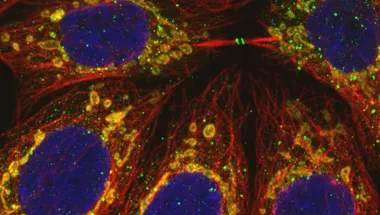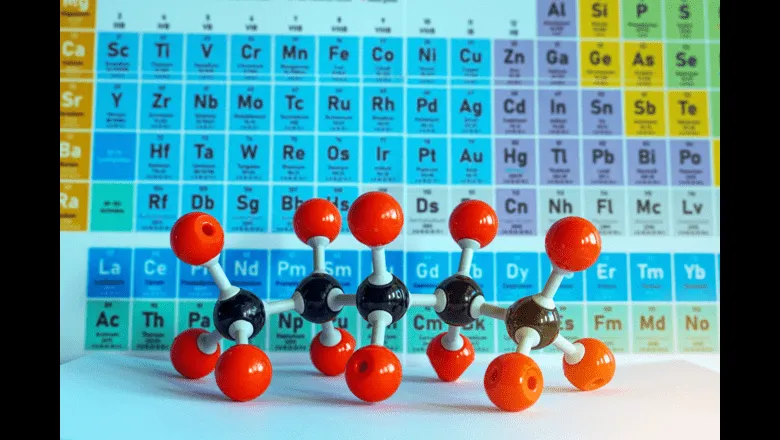
Professor Martin Ulmschneider
Professor of Computational Chemistry
Research interests
- Chemistry
Contact details
Biography
Professor Martin Ulmschneider is a Professor of Computational Chemistry in the Department of Chemistry at King's College London.
Martin studied Physics at Oxford University, followed by a DPhil at the Laboratory of Molecular Biophysics working on membrane protein simulations. International fellowships from the Wellcome Trust, Human Frontiers (Short Term), and the EU (Marie Curie) allowed him to work on membrane protein folding and membrane active peptides at the Indian Institute of Science in Bangalore, the University of Rome La Sapienza, Oxford University, Utrecht University, the University of California, Irvine, and Birkbeck College, London, before becoming an Assistant Professor at Johns Hopkins University working on biomaterials.
He joined the Department of Chemistry at King’s in 2017 and is currently working on membrane active peptide design for diagnostic and therapeutic applications.
Teaching
- MSci Research Project & Dissertation
- MRes Research Project in Interdisciplinary Chemistry
The Ulmschneider Group
Research Associates:
Postgraduate Researchers:
- Ashfeen Khokhar
- Faraz Rahimi
- Favour Ajao
- Ke Wu
- Mahnoor Kadri
- Mehwish Sabha
- Oluebube Nwajiaku
- Zhiwen Zhong
- Suleyman Hussein
The Ulmschneider Group studies how peptides and proteins interact with cellular membranes and carry out their biological functions. Despite being essential for a wide range of critical cellular processes the functional mechanics of many membrane active peptides and proteins remain poorly understood. The group uses both computational and experimental techniques to reveal the molecular mechanisms and atomic detail interactions driving membrane active peptide and protein function in biological lipid bilayers, as well as to design and optimize synthetic membrane active peptides for biomedical applications.
Research

Cross-Disciplinary Approaches to Non-Equilibrium Systems (CANES)
The mission of CANES is to train future research leaders in the understanding, control and design of systems far from equilibrium, based on rigorous training in theoretical modelling, simulation and data-driven analysis, and a breadth of awareness of common themes across disciplines.

Lipids and Membranes Research Interest Group
A Lipids and Membranes Research Interest Group
News
Interdisciplinary scientists revolutionise drug design through simulations
Molecular level computer simulations could improve the delivery of existing drugs as well as the formulation of new ones.

Department of Chemistry partners with start-up to unlock the power of quantum computing to tackle neurological disorders
Danish firm Kvantify will provide industry support to academics and students alongside funding a PhD programme and internships

Drug treatment for triple negative breast cancer
King's research into breast cancer treatment moves to in-licensing

Events

Chemistry Inaugural Lecture: Professors Ismael Díez-Pérez and Martin Ulmschneider
Join us to celebrate a special milestone for our new professors and hear about their inspiring career journeys.
Please note: this event has passed.
Research

Cross-Disciplinary Approaches to Non-Equilibrium Systems (CANES)
The mission of CANES is to train future research leaders in the understanding, control and design of systems far from equilibrium, based on rigorous training in theoretical modelling, simulation and data-driven analysis, and a breadth of awareness of common themes across disciplines.

Lipids and Membranes Research Interest Group
A Lipids and Membranes Research Interest Group
News
Interdisciplinary scientists revolutionise drug design through simulations
Molecular level computer simulations could improve the delivery of existing drugs as well as the formulation of new ones.

Department of Chemistry partners with start-up to unlock the power of quantum computing to tackle neurological disorders
Danish firm Kvantify will provide industry support to academics and students alongside funding a PhD programme and internships

Drug treatment for triple negative breast cancer
King's research into breast cancer treatment moves to in-licensing

Events

Chemistry Inaugural Lecture: Professors Ismael Díez-Pérez and Martin Ulmschneider
Join us to celebrate a special milestone for our new professors and hear about their inspiring career journeys.
Please note: this event has passed.
